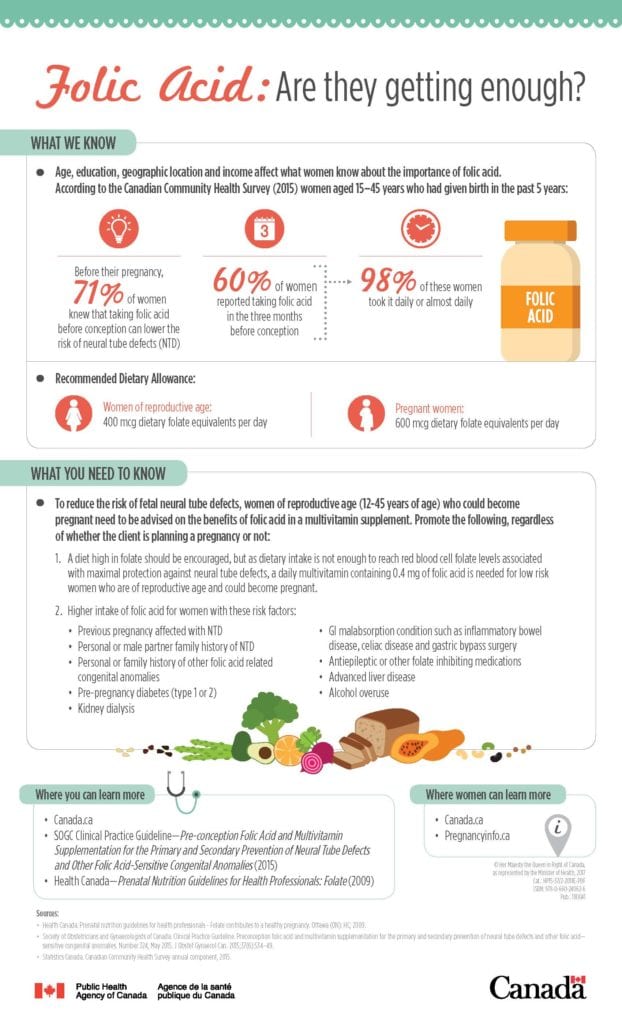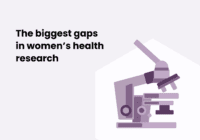Congratulations on considering pregnancy! As you prepare to grow your family, you’re likely already focusing on improving your diet, exercising regularly, and reducing stress. Adding folic acid to your routine is another important step for future moms-to-be to prepare their bodies for a healthy conception and pregnancy.
What Is Folic Acid?
Folic acid, the synthetic form of folate (Vitamin B9), supports your body in producing and maintaining new cells. Women aged 15 to 44 should take 400 mg of folic acid daily. Since it can be challenging to get enough nutrients from diet or a regular multivitamin alone, incorporating a supplement is crucial.
Even if you’re not planning to get pregnant, folic acid enhances your health in various ways. It supports cell function, brain and nerve health, and digestion. Additionally, it improves the condition of your hair, skin, and nails.
Boosting your intake before pregnancy is most effective when you start early. Folic acid is crucial for forming the fetus’s brain and spinal cord. About 17 to 33 days after conception, the neural tube, which will develop into your baby’s brain and spine, starts to form. This occurs four to six weeks after your last period, a time when many women may not yet realize they’re pregnant.
Benefits Of Supplementing Before And During Pregnancy
Research shows that taking the daily recommended dose of folic acid at least a month before conception can prevent up to 70 percent of neural tube defects. Future mothers who take 400 mg before conception and 600 mg during pregnancy significantly reduce the risk of their children having neural tube defects like spina bifida. Additionally, supplementation greatly lowers the risk of congenital heart defects and can prevent cleft lip and cleft palate.
Nearly 50 percent of pregnancies in Canada are unplanned. Therefore, it’s crucial for women of childbearing age to get enough folic acid through a balanced diet and supplementation.
Some sources recommend supplementing until at least 12 weeks of pregnancy, which is when the fetus’s spine finishes developing. However, expecting mothers may also choose to continue taking 600 mcg throughout their entire pregnancy.

Should Men Also Supplement?
Folic acid is not just essential for women thinking about getting pregnant. A study by the Fertility and Sterility journal found that supplementation increased men’s sperm count by 74 percent. After all, it is essential for your body’s systems to run as smoothly as possible for both men and women.
Natural Ways To Get More Folic Acid
Did you know that your body doesn’t naturally produce folate? If you’re looking to increase your folate intake naturally, you can do so by eating more high-folate foods. Dark leafy greens, broccoli, brussels sprouts, chickpeas, kidney beans and citrus fruits are some of the best high-folate foods. Although high-folate foods are a vital part of a healthy and well-balanced diet, the only way to ensure that you’re getting enough is by supplementing.
Talk To Your Doctor Before Taking Folic Acid
It’s always a good idea to meet with your primary healthcare provider or fertility specialist before you start growing your family. Getting ready to get pregnant is an exciting time for both you and your partner. However, you’ll always benefit from a personalized healthcare plan to ensure that you and your partner are as healthy as possible for this next chapter. Download our patient referral form to get started.
Discover more related blogs from Dr. Tanya Williams Fertility Centre:
Boosting Sperm Health with Omega-3 Supplements – What You Need to Know






